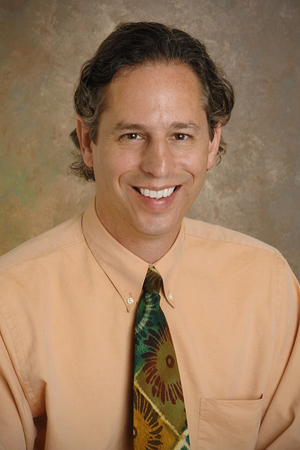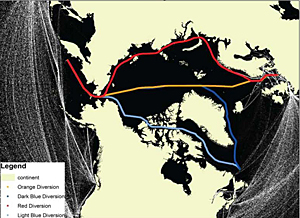

ADVERTISEMENT
- Rozovsky wins prestigious NSF Early Career Award
- UD students meet alumni, experience 'closing bell' at NYSE
- Newark Police seek assistance in identifying suspects in robbery
- Rivlin says bipartisan budget action, stronger budget rules key to reversing debt
- Stink bugs shouldn't pose problem until late summer
- Gao to honor Placido Domingo in Washington performance
- Adopt-A-Highway project keeps Lewes road clean
- WVUD's Radiothon fundraiser runs April 1-10
- W.D. Snodgrass Symposium to honor Pulitzer winner
- New guide helps cancer patients manage symptoms
- UD in the News, March 25, 2011
- For the Record, March 25, 2011
- Public opinion expert discusses world views of U.S. in Global Agenda series
- Congressional delegation, dean laud Center for Community Research and Service program
- Center for Political Communication sets symposium on politics, entertainment
- Students work to raise funds, awareness of domestic violence
- Equestrian team wins regional championship in Western riding
- Markell, Harker stress importance of agriculture to Delaware's economy
- Carol A. Ammon MBA Case Competition winners announced
- Prof presents blood-clotting studies at Gordon Research Conference
- Sexual Assault Awareness Month events, programs announced
- Stay connected with Sea Grant, CEOE e-newsletter
- A message to UD regarding the tragedy in Japan
- More News >>
- March 31-May 14: REP stages Neil Simon's 'The Good Doctor'
- April 2: Newark plans annual 'wine and dine'
- April 5: Expert perspective on U.S. health care
- April 5: Comedian Ace Guillen to visit Scrounge
- April 6, May 4: School of Nursing sponsors research lecture series
- April 6-May 4: Confucius Institute presents Chinese Film Series on Wednesdays
- April 6: IPCC's Pachauri to discuss sustainable development in DENIN Dialogue Series
- April 7: 'WVUDstock' radiothon concert announced
- April 8: English Language Institute presents 'Arts in Translation'
- April 9: Green and Healthy Living Expo planned at The Bob
- April 9: Center for Political Communication to host Onion editor
- April 10: Alumni Easter Egg-stravaganza planned
- April 11: CDS session to focus on visual assistive technologies
- April 12: T.J. Stiles to speak at UDLA annual dinner
- April 15, 16: Annual UD push lawnmower tune-up scheduled
- April 15, 16: Master Players series presents iMusic 4, China Magpie
- April 15, 16: Delaware Symphony, UD chorus to perform Mahler work
- April 18: Former NFL Coach Bill Cowher featured in UD Speaks
- April 21-24: Sesame Street Live brings Elmo and friends to The Bob
- April 30: Save the date for Ag Day 2011 at UD
- April 30: Symposium to consider 'Frontiers at the Chemistry-Biology Interface'
- April 30-May 1: Relay for Life set at Delaware Field House
- May 4: Delaware Membrane Protein Symposium announced
- May 5: Northwestern University's Leon Keer to deliver Kerr lecture
- May 7: Women's volleyball team to host second annual Spring Fling
- Through May 3: SPPA announces speakers for 10th annual lecture series
- Through May 4: Global Agenda sees U.S. through others' eyes; World Bank president to speak
- Through May 4: 'Research on Race, Ethnicity, Culture' topic of series
- Through May 9: Black American Studies announces lecture series
- Through May 11: 'Challenges in Jewish Culture' lecture series announced
- Through May 11: Area Studies research featured in speaker series
- Through June 5: 'Andy Warhol: Behind the Camera' on view in Old College Gallery
- Through July 15: 'Bodyscapes' on view at Mechanical Hall Gallery
- More What's Happening >>
- UD calendar >>
- Middle States evaluation team on campus April 5
- Phipps named HR Liaison of the Quarter
- Senior wins iPad for participating in assessment study
- April 19: Procurement Services schedules information sessions
- UD Bookstore announces spring break hours
- HealthyU Wellness Program encourages employees to 'Step into Spring'
- April 8-29: Faculty roundtable series considers student engagement
- GRE is changing; learn more at April 15 info session
- April 30: UD Evening with Blue Rocks set for employees
- Morris Library to be open 24/7 during final exams
- More Campus FYI >>
1:30 p.m., Oct. 25, 2010----As the ice-capped Arctic Ocean warms, ship traffic will increase at the top of the world. And if the sea ice continues to decline, a new route connecting international trading partners may emerge -- but not without significant repercussions to climate, according to a U.S. and Canadian research team that includes a University of Delaware scientist.
Growing Arctic ship traffic will bring with it air pollution that has the potential to accelerate climate change in the world's northern reaches. And it's more than a greenhouse gas problem -- engine exhaust particles could increase warming by some 17-78 percent, the researchers say.
James J. Corbett, professor of marine science and policy at UD, is a lead author of the first geospatial approach to evaluating the potential impacts of shipping on Arctic climate. The study, “Arctic Shipping Emissions Inventories and Future Scenarios,” is published in Atmospheric Chemistry and Physics.
Corbett's coauthors include Daniel A. Lack, from the National Oceanic and Atmospheric Administration (NOAA) Earth System Research Laboratory in Boulder, Colo.; James J. Winebrake, of the Rochester Institute of Technology; Susie Harder of Transport Canada in Vancouver, British Columbia; Jordan A. Silberman of GIS Consulting in Unionville, Pa.; and Maya Gold of the Canadian Coast Guard in Ottawa, Ontario.
“One of the most potent 'short-lived climate forcers' in diesel emissions is black carbon, or soot,” says Corbett, who is on the faculty of UD's College of Earth, Ocean, and Environment. “Ships operating in or near the Arctic use advanced diesel engines that release black carbon into one of the most sensitive regions for climate change.”
Produced by ships from the incomplete burning of marine fuel, these tiny particles of carbon act like 'heaters' because they absorb sunlight -- both directly from the sun, and reflected from the surface of snow and ice. Other particles released by ship engines also rank high among important short-lived climate forcers, and this study estimates their combined global warming impact potential.
To better understand the potential impact of black carbon and other ship pollutants on climate, including carbon dioxide, methane and ozone, the research team produced high-resolution (5-kilometer-by-5-kilometer) scenarios that account for growth in shipping in the region through 2050, and also outline potential new Arctic shipping routes.
Among the research team's most significant findings:
- Global warming potential in 2030 in the high-growth scenario suggests that short-lived forcing of ~4.5 gigagrams of black carbon from Arctic shipping may increase the global warming potential due to ships' carbon dioxide emissions (~42,000 gigagrams) by some 17-78 percent.
- Ship traffic diverting from current routes to new routes through the Arctic is projected to reach 2 percent of global traffic by 2030 and to 5 percent in 2050. In comparison, shipping volumes through the Suez and Panama canals currently account for about 4 percent and 8 percent of global trade volume, respectively.
- A Northwest Passage and Northeast Passage through the Arctic Ocean would provide a distance savings of about 25 percent and 50 percent, respectively, with coincident time and fuel savings. However, the team says tradeoffs from the short-lived climate forcing impacts must be studied.
- To calculate possible benefits of policy action, the study provides “maximum feasible reduction scenarios” that take into account the incorporation of emissions control technologies such as seawater scrubbers that absorb sulfur dioxide emitted during the burning of diesel fuel. Their scenario shows that with controls, the amount of Arctic black carbon from shipping can be reduced in the near term and held nearly constant through 2050.
“To understand the value of addressing short-lived climate forcers from shipping, you need to know the impacts of these emissions, the feasibility and availability of technologies that could be put in place to reduce these impacts, and then engage the policy-making community to debate the evidence and agree on a plan,” Corbett notes. “Our hope is that this study will enable better communication of emerging science with policy makers and aid the eight Arctic Council nations with climate policy.”
Corbett also has led recent studies to determine the global health effects of shipping, and more recently, a comparison of the daily release of oil from the Deepwater Horizon oil spill and Americans' daily energy use.
Article by Tracey Bryant


